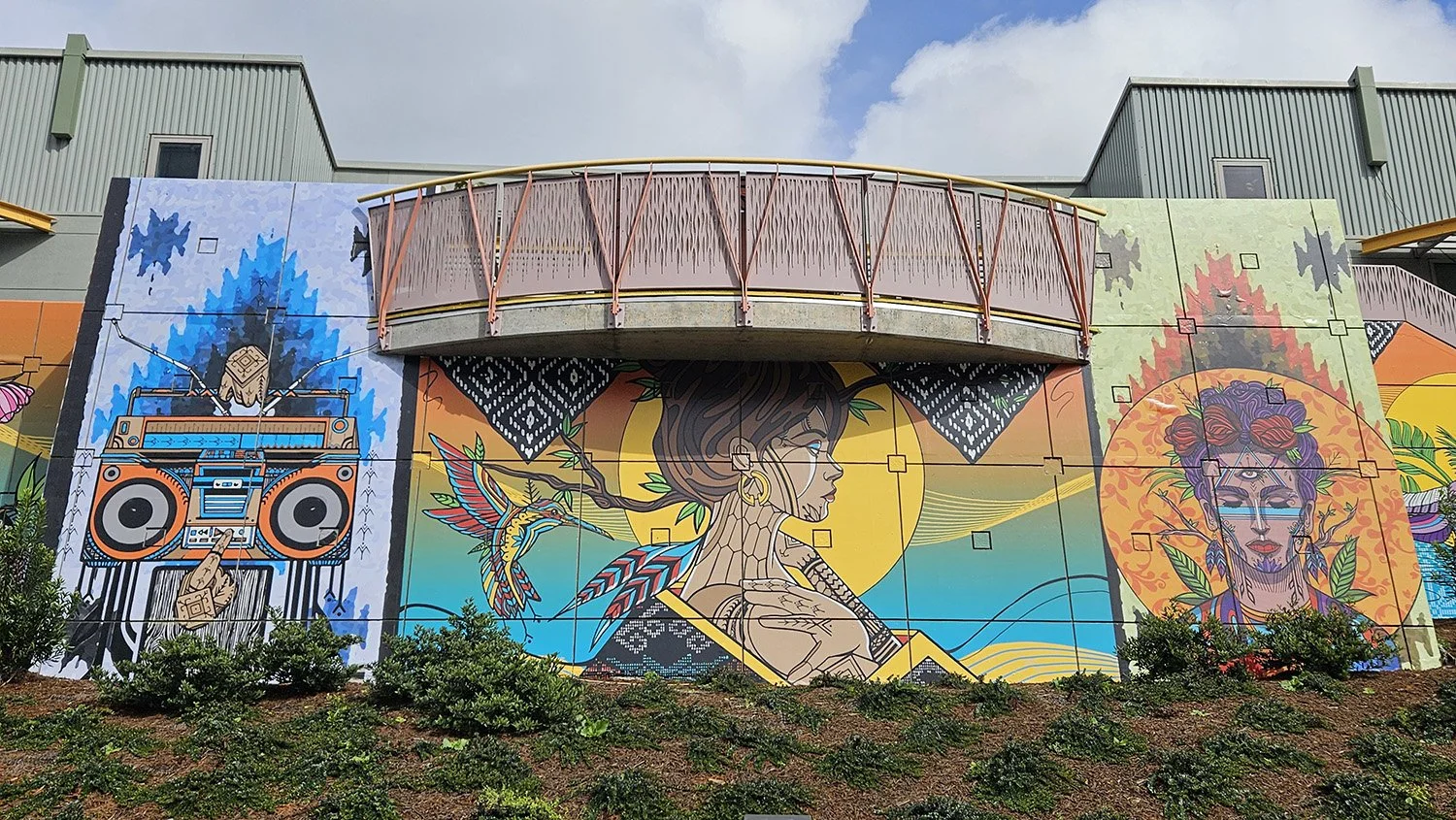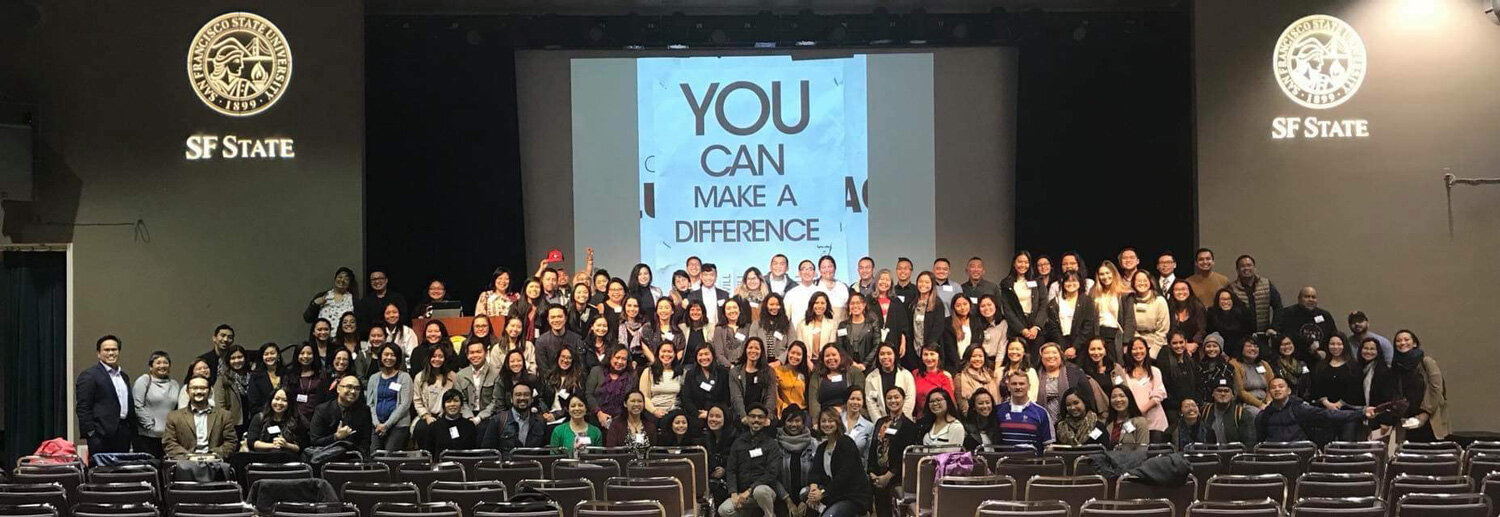Mental Health Care for Self and Kapwa During the Pandemic
/In a recent article, Dr. E.J. R. David, a psychology professor at the University of Alaska Anchorage, highlights the importance of improving data collection and conducting more research on Filipino Americans, a community that has been long understudied and underserved. When I was doing the research for my dissertation on Filipino Americans over 10 years ago, this was already a longstanding need. This period of the pandemic is exposing how critical that need is.
In a culture that historically prides itself on hospitality and its core value of caring for kapwa (the concept of seeing the self in others), health care work is one of the most popular and highly promoted professions among Filipinos. So many Filipino Americans today are working on the front lines of the war against COVID-19, leaving them susceptible to being significantly impacted by this pandemic. In the poll that Dr. David conducted and referenced in his article, 94 percent of Filipino American respondents knew someone who is a health care worker who might be exposed daily to COVID-19 at work.
Compounding this issue of overrepresentation on the COVID-19 front lines is the underutilization of mental health services by Filipinos. Mental health awareness has yet to gain a strong foothold in the Filipino community, hindered by many factors such as culture, tradition, religion, stigma, etc. However, some remarkable developments among Filipinos, both in the Philippines and abroad, indicate progress.
In 2018 in the Philippines, the Mental Health Act was signed into law. In the United States, professional membership in the Asian American Psychological Association Division on Filipino Americans (DoFA) has grown exponentially in recent years. In colleges, many young Filipinos are studying psychology and paying special attention to the needs of their community. Increased Filipino mental health awareness is shown by a greater discourse on staying not only physically healthy, but also mentally and emotionally. The pandemic presents the opportunity to amplify further mental health consciousness in the community. The pandemic impacts Filipinos in at least three important areas of mental health: caring for the self; seeking help, and caring for others.
Division on Filipino American Psychology - Asian American Psychological Association annual conference held in San Francisco, CA, 2018. Growth in membership, is a sign of the growing interest in Filipino American psychology.
Caring for Others
One distinctive Filipino trait is having strong and close family ties. The definition of a Filipino family includes grandparents, aunties, uncles, cousins, distant cousins, and even non-blood relatives. During this time of the pandemic and social distancing, that can have a significant impact on Filipino Americans. Filipinos like to gather, eat, do karaoke, and play mahjong together. They enjoy hanging out with their kapwa. Hanging out together may sound trivial but it’s an activity deeply rooted in Filipino culture and tradition. It’s the Filipinos’ deep sense of pakikipag-kapwa (solidarity/camaraderie). Many Filipinos belong to big, close-knit communities such as church groups, fraternities, and all forms of barkada (clique). Many Filipinos consider their communities not only as extended families, but also as their source of social support and overall wellbeing. Community is in many ways an extension of the Filipino self. The sudden need to isolate is taking a big piece out of that self and could come as a shock. Being away from loved ones, worrying about them and feeling unable to help could prove a heavy load mentally and emotionally.
Dr. Richelle Concepcion, the current president of the Asian American Psychological Association, says, “As a community that really thrives on our personal interactions with one another, the sudden isolation associated with the pandemic is difficult to cope with.”
And yet, we find ways to connect. Thanks to the internet and unlimited free calls, we can keep our connections, at least virtually. Dr. Concepcion cites some other creative ways of keeping our connections such as, sending food care packages or even just dropping off a homemade meal or goodie for an isolated family member or friend. Dr. Concepcion adds: “I’ve learned about some of the unique ways that families and friends stay connected. They schedule regular meetups to either just check-in, sing karaoke, host cooking classes and even pray. On social media, people are posting how they are driving and honking by the residences of folks to celebrate birthdays, graduations, or even just to say hello, which can still be impactful in the advent of social distancing.”
Now might be a good time to finally learn how to make that ube pandesal (purple yam roll) or whatever Filipino delicacy, prepare it with love, and share it with your isolated friends and relatives.
Caring for the Self
Many Filipino households are big and often composed of multigenerational families. It is a living arrangement that has traditional and practical roots. But in this time of the pandemic, it can be a double-edged sword. Front liners often devote a significant amount of their work-week caring for others. When they get off their shifts, they go home to take care of their own families, which often include their children and/or parents. There’s very little room for “me time” for these front liners to care for themselves.
Dr. Concepcion was recently tasked to work with hospital staff, many of them Filipinos, to help them develop self-care skills. She encourages front liners to “stay engaged in some sort of creative activity as a means of distraction. Integrate the habit of mindfulness into activities such as cooking, writing, art work. It can also help folks with their mental wellness.”
“Compounding this issue of overrepresentation on the COVID-19 front lines is the underutilization of mental health services by Filipinos.”
In recent weeks, as I did simple and mundane household chores like vacuuming the stairs or wiping down the window blinds, I would suddenly find myself in some state of calm and peace. Being sheltered-in-place with nowhere to go, no birthday party to get ready for, or no church to go to, can do that to us.
For some, caring for others is a source of calm and peace. It is common in Filipino culture to be simply caring and giving. Be it a chore, hobby, or duty such as taking care of lola, integrating mindfulness makes a difference. This lockdown is giving us the opportunity to be more mindful, and calm and serenity can be found in even the most routine activities.
Seeking Help
Filipinos, both in the Philippines and abroad, are known to be reluctant to seek help for mental health problems. The underutilization of professional mental health services, however, doesn’t mean lower rates of psychological distress. Many would rather seek the help of friends and relatives rather than see mental health professionals. The mental health community recognizes this problem and has made some advances in the promotion of mental health and well-being among Filipinos.
In recent weeks, webinars have been offered to provide support and education to the Filipino community. Dr. Concepcion adds: “I’ve seen many webinars that led discussions on coping strategies, some that have offered art, cooking classes, financial planning, and others who have facilitated healing circles of sorts (e.g., prayers, meditation, etc.). Although they may not reflect the typical manifestations of mental health services, they can be just as impactful and meaningful with providing the support folks are needing at this time. It is reflective of the provision of psychological first aid which is an effective intervention to assist those who are dealing with traumatic events or disasters.”
Impact on OFW
Although Filipinos have many cultural similarities on the macro-level, let us not lose sight of the fact that Filipinos are also diverse, and so are their needs. Among the largest subgroups getting hit by this pandemic in particularly unique ways are the overseas Filipino workers (OFWs). Many OFWs have come to the US as professionals separated from their immediate families and close friends. Many live in rural parts of America where local community resources can be limited. The pandemic is an added obstacle to caring for their loved ones who are thousands of miles away in the Philippines.
Taken on Good Friday, April 1977. These pioneer nurses arrived in Kansas City. Experienced and ready to embark on their exciting adventure, the nurses also had to face challenges with diversity and cultural differences. (Photo by Teresa Gonzalvo, one of the pioneer nurses in the photo and a leader of the Filipino nursing community.)
Dr. Concepcion notes that, in addition to being separated from families, OFWs have to deal with other concerns such as labor rights and discrimination. She encourages OFWs to also “maintain physical health through healthy eating, exercise, physical activity as well as emotional, mental, and spiritual health. Engaging in enjoyable activities such as reading, listening to music, and writing, for example (that are reasonable with social distancing) can be helpful.” But she also emphasizes the importance of “staying informed, to know who the local representatives are in case they have to contact somebody should a concern arise. Talk to someone whether it be a mental health professional, a family member, or a friend.”
The pandemic is an opportune time to connect not only with loved ones, but also with others in our interconnected world. Dr. Concepcion says, “It can be difficult living in a country that’s far away from family while also trying to maintain connection with a likely busy schedule. It may be helpful to schedule time during off days to chat with family members whether through text if time is limited, or Zoom/Skype/Facebook if there is more time. Finding community in online forums such as religious/prayer groups, alumni/professional/career/town organizations can facilitate connectedness despite the distances.”
I’ve noticed an increase in my Facebook interactions with friends in the Philippines. I’m interacting with some for the first time since high school. Our adult lives might have taken off in different directions, but this global pandemic has unexpectedly brought us together again.
For OFWs worrying about friends and families in the Philippines, the mental health community there has been proactive in sharing psychological care resources to those in need. I reached out to Dr. Sheila Marie G. Hocson, who has been actively promoting mental health awareness in the Philippines in recent weeks via social media and other online platforms. She led me to some of the resources available for those in need of psychological services, including telehealth services appropriate in this time of social distancing. The Psychological Association of the Philippines has released a list of centers offering free online psychological services during the COVID-19 pandemic. The list is made available on their Facebook page (https://www.facebook.com/Psychological-Association-of-the-Philippines-148851815387/).
If in need, reach out to these mental health resources and share with our kapwa. These are tough times and we really have to find novel and creative ways of caring for one another. Look out for one another and keep the connections strong. In fact, now is the opportunity to reestablish and even strengthen and deepen those connections.
BJ Gonzalvo, PhD, is a psychology researcher, consultant, and writer about faith and culture. He is currently collecting and archiving histories, stories, kuwentos, images, narratives, and reflections on what faith means to Filipinos in America today. Visit http://www.saintlynest.com/ to learn more.
More articles from BJ Gonzalvo




